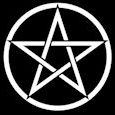No one knows, for sure, when humans began using herbs for medicinal purposes.
The first written record of herbal medicine use showed up in 2800 B.C.
in China. Since then the use of herbs has gained and fallen out of, favor many times in the medical field.
The timeline that follows shows some of the key dates and major points in the history of herbal medicine.
2800 B.C.– The first written record of herbal medicine use showed up. (Titled the Pen Ts’ao by Shen Nung)
400 B.C.– The Greeks joined the herbal medicine game. Hippocrates stressed the ideas that diet, exercise, and overall happiness formed the foundation of wellness.
50 A.D.– The Roman Empire spread herbal medicine around the Empire and with it the commerce of cultivating herbs.
200 A.D.– The first classification system that paired common illnesses with their herbal remedy appeared. This was prepared by the herbal practitioner Galen.
800 A.D.– Monks took over the herbal field with herbal gardens at most monasteries and infirmaries for the sick and injured.
1100 A.D.– The Arab world became a center of medicinal influence. Physician Avicenna wrote the Canon of Medicine, which gave mention to herbal medicines.
1200 A.D.– Black Death spread across Europe and herbal medicines were used along side “modern” methods such as bleeding, purging, arsenic and mercury with equal, or better, results.
1500 A.D.– Herbal medicine and herbalists were promoted and supported by Henry VII and the Parliament, due to a large number of untrained apothecaries giving substandard care.
1600 A.D.– Herbs were used in treating the poor, while extracts of plant, minerals, and animals (the “drugs”), were used for the rich. The English Physician, an herbal explaining the practice of herbal medicine, was written during this time.
1700 A.D.– Herbal medicine got another high profile endorsement from Preacher Charles Wesley. He advocated for sensible eating, good hygiene and herbal treatments for a healthy living.
1800 A.D.– Pharmaceuticals began to hit the scene and herbal treatments took a back seat. As side effects from the drugs began to be documented, herbal remedies came into favor again. The National Association of Medical Herbalists was formed, and later renamed the National Institute of Medical Herbalists (NIMH.)
1900 A.D.– lack of availability of drugs during World War I increased the use of herbal medicines again. After the war pharmaceutical production increased and penicillin was discovered. Herbal practitioners had their rights to dispense their medications taken away and then reinstated. The British Herbal Medicine Association was founded and produced the British Herbal Pharmacopoeia. People began to express the concern over the large number of side effects and environmental impact of the drugs of the 1950s.
2000 A.D.– EU took action on the regulation and testing of herbal medicines similar to those used for pharmaceuticals.
Herbal medicines have been documented for almost 4000 years.
These medicines have survived real-world testing and thousands of years of human testing.
Some medicines have been discontinued due to their toxicity, while others have been modified or combined with additional herbs to offset side effects.
Many herbs have undergone changes in their uses. Studies conducted on the herbs and their effects keep changing their potential uses.
